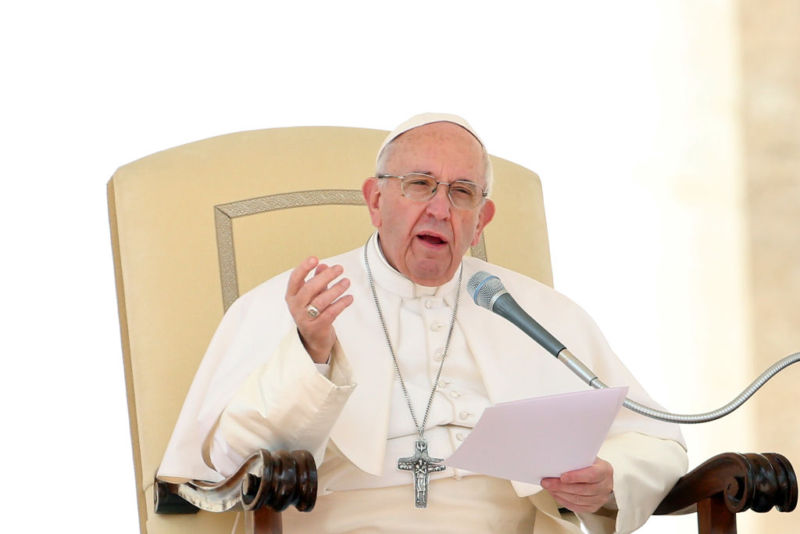
Pope Francis is warning the world's youth to be wary of the "false image of reality" portrayed in social media and on reality television shows.
In a written message the Vatican issued Tuesday, the pontiff cautioned followers not to let the Internet dilute the church's message. The speech will be released in video format on World Youth Day on April 9.
"History teaches us that even when the Church has to sail on stormy seas, the hand of God guides her and helps her to overcome moments of difficulty. The genuine experience of the Church is not like a flash mob, where people agree to meet, do their thing, and then go their separate ways," Francis wrote.
As the head of the Roman Catholic Church, Francis leads the world's largest Christian church, with more than 1.2 billion followers globally. The pontiff's words follow a slew of studies about social media and teens, who log about nine hours a day of online media. Studies suggest overuse can lead to depression, alter sleep patterns, foster poor nutrition, encourage bad physical fitness habits, and promote "filtered versions of reality."
The “spiritual journal”
The 80-year-old pope, who has 10.5 million Twitter followers, warned the world's youths, "Don't be led astray by the false image of reality" that the online world may portray.The speech echoes a similar line from the pope's message at last year's World Youth Day, in which Francis urged teens not to be "couch potatoes." But in the latest speech, he directly addresses social media, saying:
Many people say that young people are distracted and superficial. They are wrong! Still, we should acknowledge our need to reflect on our lives and direct them towards the future. To have a past is not the same as to have a history. In our life we can have plenty of memories, but how many of them are really a part of our memory? How many are significant for our hearts and help to give meaning to our lives? In the social media, we see faces of young people appearing in any number of pictures recounting more or less real events, but we don’t know how much of all this is really "history," an experience that can be communicated and endowed with purpose and meaning. Television is full of "reality shows" which are not real stories, but only moments passed before a television camera by characters living from day to day, without a greater plan.
Instead of being led astray by social media, the pope urged teens to focus on "life" and to reflect on "the good times and the challenges" in a "spiritual journal."
"In this way, before God and before ourselves, we can express our gratitude, our regrets and our trust," Francis said. "If you wish, you can also write them down in a notebook as a kind of spiritual journal. This means praying in life, with life and about life, and it will surely help you to recognize the great things that the Lord is doing for each of you."
reader comments
133